Eternal Security and Personhood
Devra Torres | Feb 15, 2013
As an Evangelical teenager, I once asked my Sunday school teacher:
So, if I’m saved no matter what I do, does that mean I can commit all the sins I want from now on?
There was a pause, and then she replied:
Well...if you were really saved, you wouldn’t want to.
But even she didn’t sound convinced.
This is one of many subjects addressed in this fascinating book by Fr. John R. Weiss and James G. McCarthy.
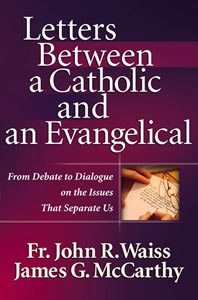
It's a great read for an Evangelical-to-Catholic convert like me, or for anybody with an interest in life-or-death spiritual questions. The format lets each co-author speak for himself. Neither was persuaded to convert by the time it was published, so it’s completely “objective.”
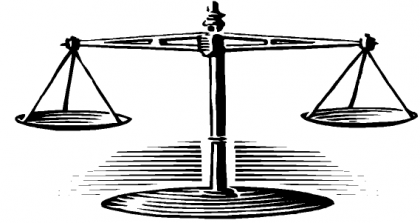
It also shines light on two very different views of the person, his freedom of action, and his relations with God.
Evangelicals generally believe in eternal security: “Once saved, always saved.” Once you put your faith in Jesus, you can never lose your salvation, regardless of any subsequent good or evil “works." You make that single, crucial decision, and then your free will becomes irrelevant, or (since you can still make choices that express your faith) at least ineffectual. It's of no consequence to your destiny.
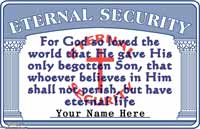
For a new Catholic, on the other hand, the “working out of salvation in fear and trembling” still looms ahead. God continues to respect our freedom, no matter what noble or malicious use we make of it.
Our free will isn’t rendered obsolete: we retain the power to reaffirm or reject the gift of salvation. We rejoice in hope, but we don’t revel in guarantees. Our collaboration is still required. It’s not that we harbor doubts about God’s power to save—we just don’t take our own future decisions for granted.

In other words, the Catholic view involves a real interplay between two free persons, upon which something really depends, and that continues right up until our last breath.
Another difference is this: The Catholic view involves an authentic (though not necessarily obvious) transformation: not just the “imputation” of righteousness which makes man, in Luther’s phrase, a “snow-covered dunghill.”

So although final salvation is less secure, the effect of grace is more penetrating. The belief that righteousness is imputed to us is more like a legal fiction, or a business deal, than any human relationship in our experience.
From the evangelical point of view, less depends on our own response—or, you could say, everything depends on the one-time response of “accepting Jesus Christ as our personal Lord and Savior.” From that moment on, our salvation doesn’t stand or fall with any choice of ours. Instead of the interplay between free personal agents, the Christian’s subsequent relationship with God becomes the inevitable embodiment of that one free decision.
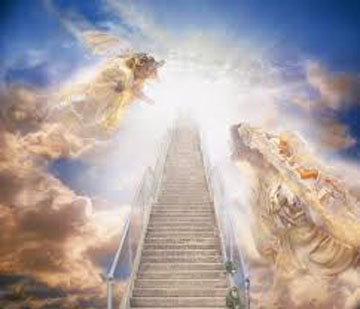
These views are very tricky to express without misrepresentation of one side or the other. To clear up just a couple possible misunderstandings:
- Catholics don’t believe that we can do any good works without grace. We believe that God dwells within us, that “no longer I live, but He lives in me”—so it can be misleading to talk about “our” good, meritorious actions, as if we were the sole source of them, in some way that excluded God. And yet, as Katie argues here, "our decisions belong to us."
- I’m not saying Protestants act as if their free actions after conversion don’t matter, or that their relationship with God is stagnant. (In fact, when my mother was first looking into Catholicism she was puzzled because, although we had learned that the Catholics trusted in works and the Protestants in faith, it seemed that someone must have gotten it backwards. The Protestants we knew were imbued with a powerful work ethic—industrious, conscientious people, who “did all to the glory of God.” The Catholics we knew were less edifying.)
Still, "fear and trembling" seems more in tune with the realities of personhood than "once saved, always saved."
The interplay of our own free decisions and God’s amounts to a real communio personarum. Just as in matrimony: you do make a single, all-important vow, but then you need to live up to it. Marriage can deepen, stagnate, or self-destruct.

Similarly, with friendship—it can intensify, be broken, or fade away. Or take parenthood: begetting or conceiving the child is (believe me, I have eight kids, and I know!) just the beginning. The fruition of all that promise is neither automatic nor guaranteed. Just like the life of faith—according to the Catholic understanding.
Now, this might seem irrelevant. We’re talking about the infinite God and a mere human being. Why would we expect it to resemble any human relationship in our experience? After all, as God points out to the Prophet Isaiah,
…as the heavens are higher than the earth,
so are my ways higher than your ways
and my thoughts than your thoughts.
Or, as our local radio chaplain, Fr. Pat Egan, likes to say,
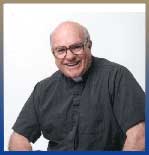
He’s God. You’re not. Get used to it.
Yet it’s God Himself, over and over, who calls us His friends, His brothers and sisters, His children, and, most insistently, His bride. The Covenants, Old and New, bear no resemblance whatever to a business contract. They’re much more like a marriage covenant, establishing not a deal but a bond.
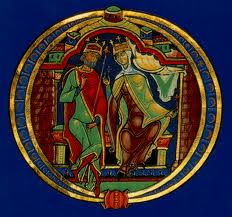
There are promises and obligations on both sides, but that’s where the similarity ends.
So my Sunday School teacher gave me a thoroughly unconvincing answer to my question. But it was the wrong question. I was thinking of Heaven as a party for which I needed a certain kind of ticket, instead of a wedding in which I was the bride.

